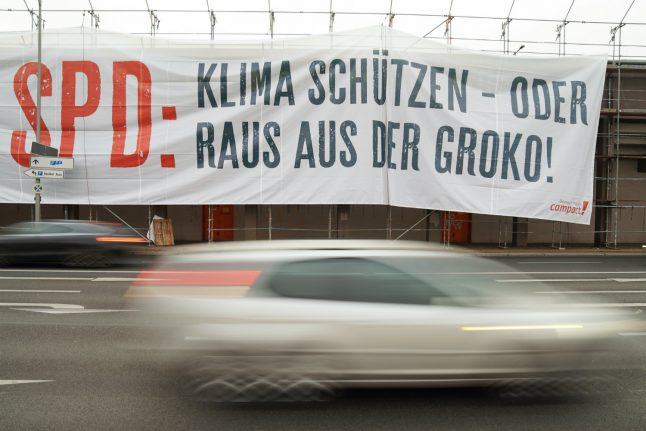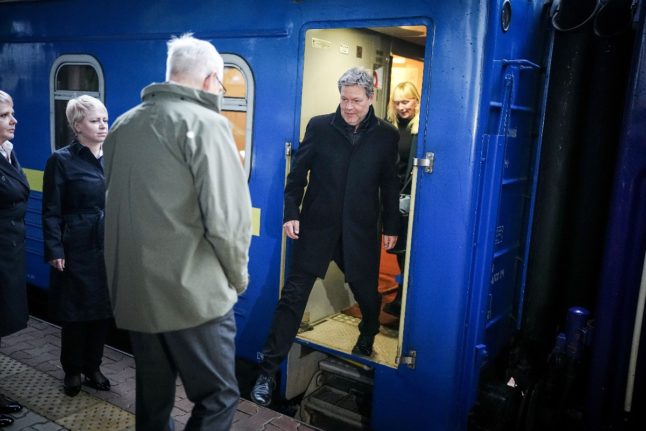Some 600 delegates from the centre-left SPD will be gathering at a Berlin convention centre until Sunday.
They will debate which concessions they want to wring from Merkel's CDU/CSU conservatives if the coalition is to survive.
The conference also marks the big-stage debut of co-leaders Norbert Walter-Borjans and Saskia Esken – the shock winners of a vote last month who are set to be formally confirmed in their new roles on Friday.
The relatively unknown duo defeated Finance Minister Olaf Scholz and his running mate Klara Geywitz in what was seen as a rejection of the status quo in favour of a more leftist course for the struggling SPD.
GroKo 'stress test'
The winning pair have criticized Merkel's coalition, known as GroKo in Germany, but they have stopped short of calling an in-or-out vote at the congress.
Instead, the two want to launch talks with Merkel's bloc on tweaking the coalition agreement, and are asking SPD delegates to back their push for more climate protection and increasing the minimum wage.
The important question is policy content and not “knowing whether or not” the SPD will stay in the coalition, Walter-Borjans said on Thursday.
READ ALSO: SPD shakeup: What does the future hold for Merkel's coalition government?
Although an immediate collapse of the coalition is not on the cards, the Social Democrats could walk away in the weeks ahead if they see insufficient progress — potentially ushering in an early end to Merkel's final term in
office.
The Handelsblatt financial daily described the upcoming conference as a “stress test for the GroKo”.
'Don't want to rush out'
Senior figures from Merkel's centre-right CDU and its Bavarian CSU sister party have balked at the idea of renegotiating the hard-fought coalition pact clinched after 2017's inconclusive general election.
But Merkel's spokesman has said the veteran chancellor, who plans to stand down at the next elections in 2021, is “open” to talks.
The SPD sees room for compromise as the coalition pact includes a half-time review clause for the partners to take stock of the government's achievements after two years — and make changes if necessary.
“We don't want to rush out of the coalition,” said Walter-Borjans.
The soft stance has angered SPDers hoping for a clean break with the Merkel era, and the congress is expected to hear calls for the party to quit the coalition.
 The SPD's co-leaders Norbert Walter-Borjans and Saskia Esken. Photo: DPA
The SPD's co-leaders Norbert Walter-Borjans and Saskia Esken. Photo: DPA
But former regional finance minister Walter-Borjans, dubbed NoWaBo by German media, and lawmaker Esken hope to win over sceptics with ideas for a more environmentally friendly and socially just Germany.
They want to lift the minimum wage from nine to €12 per hour, and significantly raise the price for CO2 emissions from the proposed 10 euros per tonne.
They are also calling for huge investments in Germany's schools and transport infrastructure as well as digitalisation, reportedly to the tune of €450 billion over the next decade.
That could mean ditching the government's cherished policy of maintaining a balanced budget and not taking on new debt – a red line for the CDU/CSU even as clouds gather over Europe's largest economy.
'Fresh start'
In power for more than 14 years, Merkel plans to retire from politics when her fourth term ends.
But the fragility of her coalition government, which has lurched from crisis to crisis, could hasten her departure.
If the SPD calls it quits, she could opt to head an unstable minority government.
Merkel has voiced scepticism at the prospect but it would allow her to steer Germany through the six-month presidency of the EU Council from July 2020.
Or Germany could face a rare snap election — without Merkel.
Observers say voters could well punish the SPD and CDU for sending them back to the polls early, while the far-right AfD and the surging Greens have the most to gain.
Der Spiegel weekly said fresh elections, in which the CDU and Greens are poised to come out on top, could reinvigorate a country wearied by years of Merkel compromises.
“Instead of Merkel's eternal end phase, a fresh start could be possible,” it said.



 Please whitelist us to continue reading.
Please whitelist us to continue reading.
Member comments